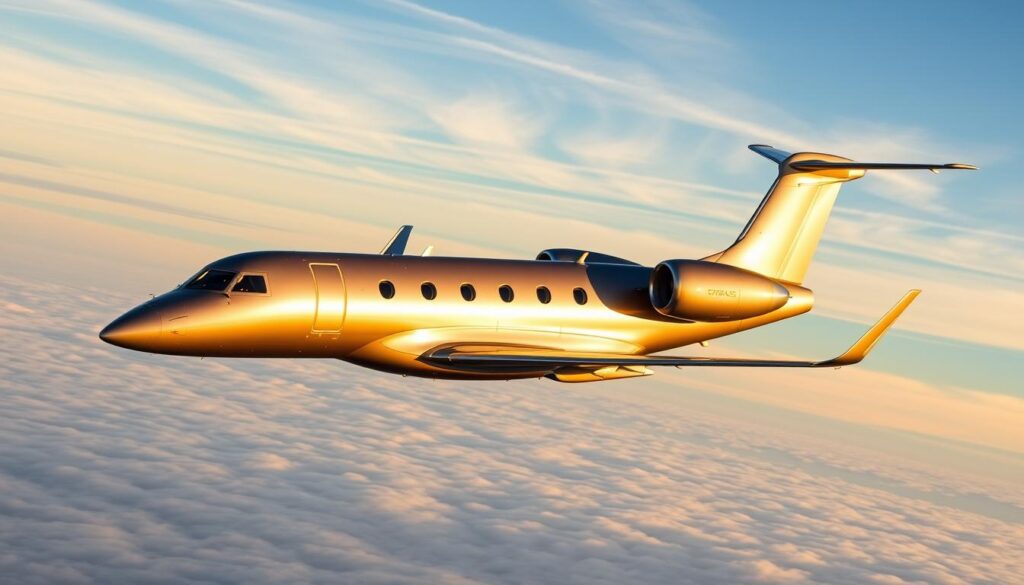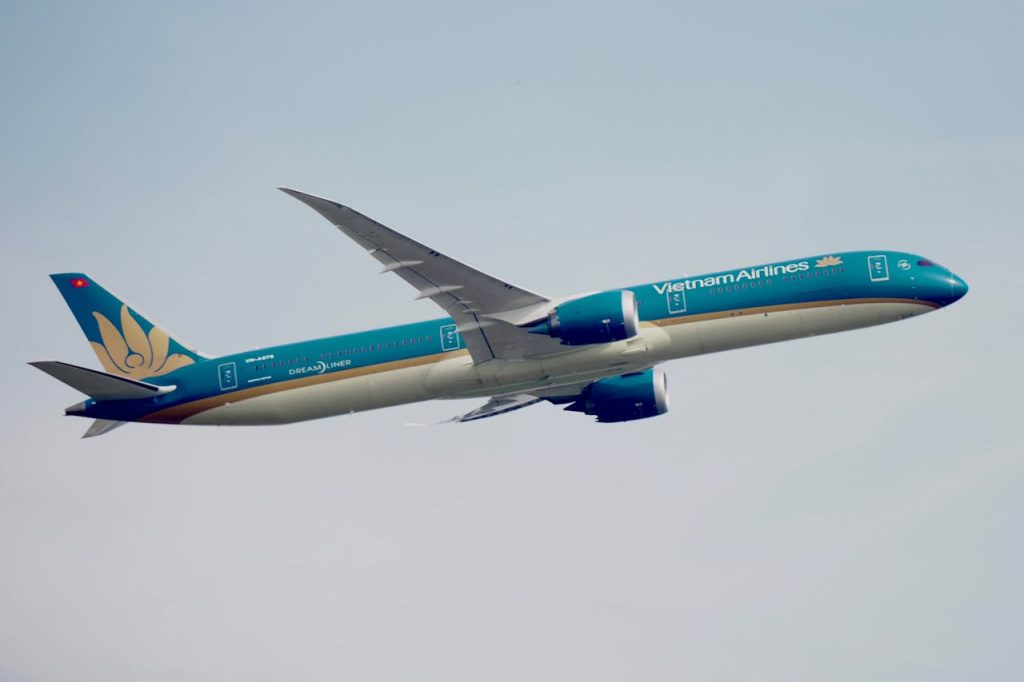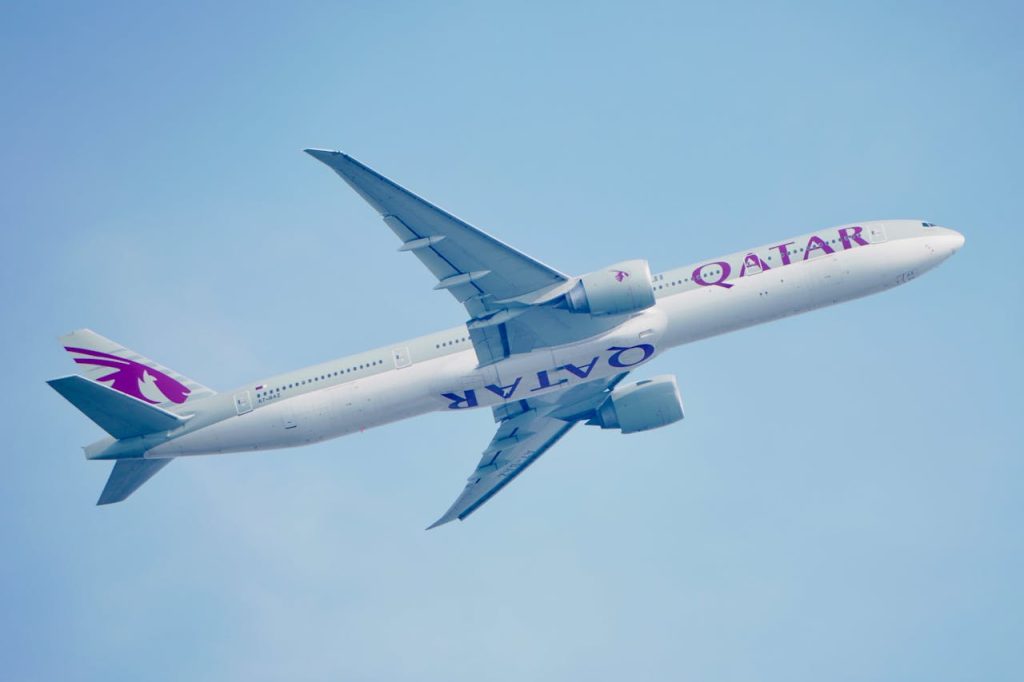Did you know the EMBRAER ERJ 190-200 can cover up to 2,000 nautical miles? This makes it perfect for regional flights where saving on cost matters. It first came into use on March 17, 2004, thanks to LOT Polish Airlines. This jet stands out because it offers a great mix of design progress and performance for airlines needing to serve fewer passengers.
It can seat between 98 and 114 people, showing it’s meant for airlines that want to save money but keep travelers comfortable. As part of the EMBRAER E-Jet family, the ERJ 190-200 plays a crucial role in the aviation field. It finds just the right balance between working well, saving on costs, and keeping passengers happy.
Key Takeaways
- The EMBRAER ERJ 190-200 can travel up to 2,000 nautical miles.
- Introduced by LOT Polish Airlines, it first took to the skies in 2004.
- This regional jet aircraft accommodates 98 to 114 passengers.
- It is designed specifically for lower-demand airline routes.
- Part of the EMBRAER E-Jet family, it balances efficiency and comfort.
Overview of the EMBRAER E-Jet Family
The EMBRAER E-Jet family marks a big moment in regional flying. It includes well-known models like the ERJ 170, ERJ 175, ERJ 190, and ERJ 195. This series started in the late 1990s. EMBRAER wanted to offer a flexible option for the rising need for regional flights. The E-Jets were made because there was a demand for bigger planes. These planes were needed to efficiently fly short to medium routes.
Historical Background
Shown first at the 1999 Paris Air Show, the EMBRAER E-Jet family grabbed the aviation world’s attention. Airlines were searching for modern planes with *more space*, better efficiency, and higher comfort for passengers. So, the E-Jets were developed to meet both airlines’ needs and changing market demands.
Purpose and Design Goals
The EMBRAER E-Jets family was designed with airlines’ varied needs in mind. They focus on being economical and efficient. The aim was to mix functionality with comfort for passengers. This made the E-Jets an ideal choice for both mainline and regional airlines, especially in North America.
Specifications of the EMBRAER ERJ 190-200
The EMBRAER ERJ 190-200 is notable for its specific features meant for regional flights. It has unique physical features and engine power. This makes it a top pick for many airlines.
Physical Attributes
The EMBRAER ERJ 190-200 is quite long, reaching about 147 feet. It has a 94-foot wingspan thanks to its winglets. Its cabin is roomy enough for 114 passengers yet still keeps costs down.
Its design focuses on making sure passengers are comfy. It also meets the needs for range and space common in regional jets.
Engine and Performance Details
It has two General Electric CF34-10E engines, giving it great power. Each engine thrusts up to 20,000 pounds. This lets the plane cruise at 0.82 Mach speed.
It can fly as far as 2,400 nautical miles. This lets airlines use it on a variety of local trips. The EMBRAER ERJ 190-200 is made to adapt well to current flight market needs.
EMBRAER ERJ 190-200: Modern Features and Innovations
The EMBRAER ERJ 190-200 is known for its unique features which focus on saving fuel and helping the environment. Airlines see the importance of being environmentally friendly, making this jet a top pick. They aim to lessen their environmental effects while keeping operations top-notch.
Fuel Efficiency and Environmental Impact
The EMBRAER ERJ 190-200 uses new tech to greatly improve its fuel efficiency. It has special designs like winglets that reduce air resistance and save fuel. This makes it cheaper for airlines to fly.
This plane’s engines meet tough regulations set by the International Civil Aviation Organization. Because of this, the EMBRAER ERJ 190-200 cuts down on pollution a lot. Airlines that care about being responsible like this because it helps them meet their green goals.
Airlines that focus on being green love the EMBRAER ERJ 190-200. It offers better performance and less harm to the environment. As aviation looks to a future where being eco-friendly is key, this jet shows off the important changes needed for cleaner flights.
Operational History and Usage
The EMBRAER ERJ 190-200 has been key in airline networks. LOT Polish Airlines’ first commercial flight in March 2004 was a big moment. Since then, many airlines have used this aircraft to improve their regional services.
Pioneering Airline Operations
JetBlue and SkyWest Airlines were among the first to use the ERJ 190-200 for regional flights. They saw its benefits and used its advanced technology. This trust helped make the aircraft popular in aviation.
Success in the Aviation Market
The ERJ market success is shown by over 1,700 units made. This shows its strong global presence. Airlines like its efficiency and reliability, which help connect regions. Its operational history mixes performance, comfort, and cost benefits, winning over operators and passengers.
| Airline | Year of First Operation | Fleet Size of ERJ 190-200 |
|---|---|---|
| LOT Polish Airlines | 2004 | 15 |
| JetBlue Airways | 2005 | 60 |
| SkyWest Airlines | 2005 | 62 |
| American Airlines | 2006 | 50 |
Variants of the EMBRAER ERJ Series
The EMBRAER ERJ series offers different models for regional flights. The ERJ 190 and ERJ 200 are especially unique. Yet, they keep features that help airlines a lot.
Comparison Between the ERJ 190 and ERJ 200
Comparing the ERJ 190 with the ERJ 200 shows some big differences. First, the ERJ 190 can hold 98 to 114 passengers. It meets the needs of many markets.
Meanwhile, the ERJ 200 can fit a bit more people inside. This makes the ERJ 200 a great choice for bigger groups.
Both aircraft are similar in many ways, which is great for maintenance. This makes it easier and cheaper for airlines to take care of them.
| Feature | ERJ 190 | ERJ 200 |
|---|---|---|
| Passenger Capacity | 98-114 | Up to 118 |
| Range (nm) | 2,900 | 2,800 |
| Length (ft) | 118.8 | 120.0 |
| Wingspan (ft) | 94.5 | 94.5 |
| Max Takeoff Weight (lbs) | 110,500 | 113,500 |
The ERJ 190 and ERJ 200 work well together. This helps airlines serve different types of passengers better.
Advantages of Choosing the EMBRAER ERJ 190-200
Choosing the EMBRAER ERJ 190-200 has big advantages for airlines. It aims to make flying better for passengers and helps airlines run smoother. It’s a great choice due to its focus on being efficient and comfy.
Economic Benefits for Airlines
The EMBRAER ERJ 190-200 brings economic benefits to airlines. Thanks to its advanced General Electric CF34-10E turbofan engines, it uses less fuel. This means airlines can save money and keep ticket prices competitive.
Its reliability rate is 99.9%, so there’s hardly any downtime for repairs. This helps airlines save even more. So, flying the EMBRAER ERJ 190-200 can really boost an airline’s profits.
Passenger Comfort and Amenities
What passengers get on a flight really matters. The EMBRAER ERJ 190-200 has roomy seats and big windows for a nicer journey. There’s also enough room to stand up and modern entertainment options.
These features make flights more enjoyable. They also make passengers want to fly again, helping airlines keep their customers. This is key in a market where everyone’s trying to win over travelers.
In short, the EMBRAER ERJ 190-200 offers benefits for both airlines and their passengers. It shines in the regional jet class for its money-saving design and focus on passenger happiness. For a closer look at what makes the EMBRAER E-Jet family special, check this out.
| Feature | Details |
|---|---|
| Passenger Capacity | Up to 114 in single-class configuration |
| Range | Approximately 2,694 nautical miles |
| Fuel Efficiency | Notable reductions in fuel consumption due to winglet design |
| Engine | General Electric CF34-10E with 20,000 lbf thrust |
| Cabin Amenities | Spacious seating, entertainment systems, and large windows |
Market Positioning of the EMBRAER ERJ 190-200
In the race of regional jets, the EMBRAER ERJ 190-200 claims its spot uniquely. It goes head-to-head with big names like the Bombardier CRJ series and ATR aircraft. What makes it shine? A blend of features loved by airlines and passengers alike.
Competitors in the Regional Jet Segment
The EMBRAER ERJ market stands out with its fuel efficiency, low running costs, and flexible range. These perks draw carriers looking for profit. Sure, rivals like the CRJ series perform well, but they tend to cost more over time. The ERJ 190-200, though, cuts maintenance costs and is reliable, making it a favorite.
There’s a tough fight among regional jet models, each with its own edge. But, the ERJ 190-200’s solid performance and good name help it keep a strong stance, especially with North American carriers.
Future of the EMBRAER ERJ Series
The future of the EMBRAER ERJ series looks bright with the E-Jet E2 family on the horizon. This new series will build on what airlines loved about the ERJ series. It shows a commitment to better engineering and caring for the environment, something very important today.
Transition to the E-Jet E2 Family
Moving from the EMBRAER ERJ series to the E-Jet E2 family means big tech advances. This change is not just for looks; it aims for better efficiency and fewer emissions. Airlines will see benefits like using less fuel and flying longer distances with more flexibility.
Innovations on the Horizon
New innovations in aviation are set to change how we travel. The E-Jet E2 isn’t just about flying better; it’s also about making the ride nicer for passengers. Things like better seats and quieter engines mean a more comfortable trip. With EMBRAER focusing on these advances, regional travel is going to get a big upgrade.
Conclusion
The EMBRAER ERJ 190-200 is a top choice for efficient regional jets. It combines leading design with performance. This makes it a key player for airlines wanting better routes.
Looking ahead, the foundation of the EMBRAER ERJ 190-200 is crucial. It will shape new advancements as EMBRAER moves to the E-Jet E2 family. This plane’s legacy will inspire new changes in air travel.
The momentum from the ERJ series will help meet new challenges in flying. It shows us how air travel will evolve, leaving a lasting mark on the industry. This makes us excited for what’s next in flying.


